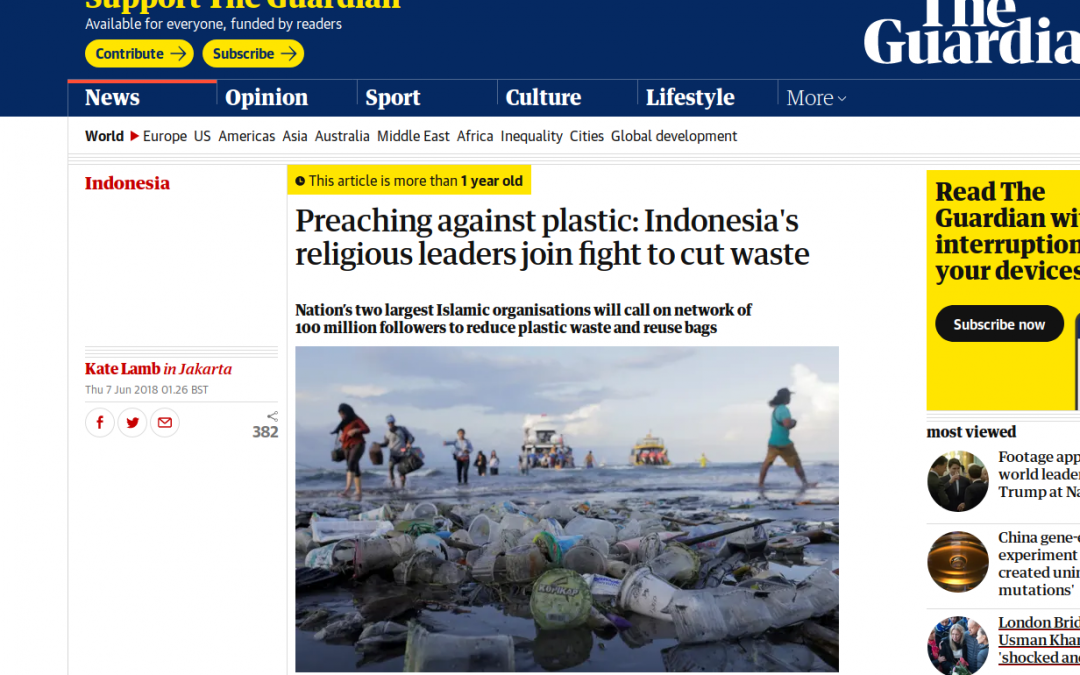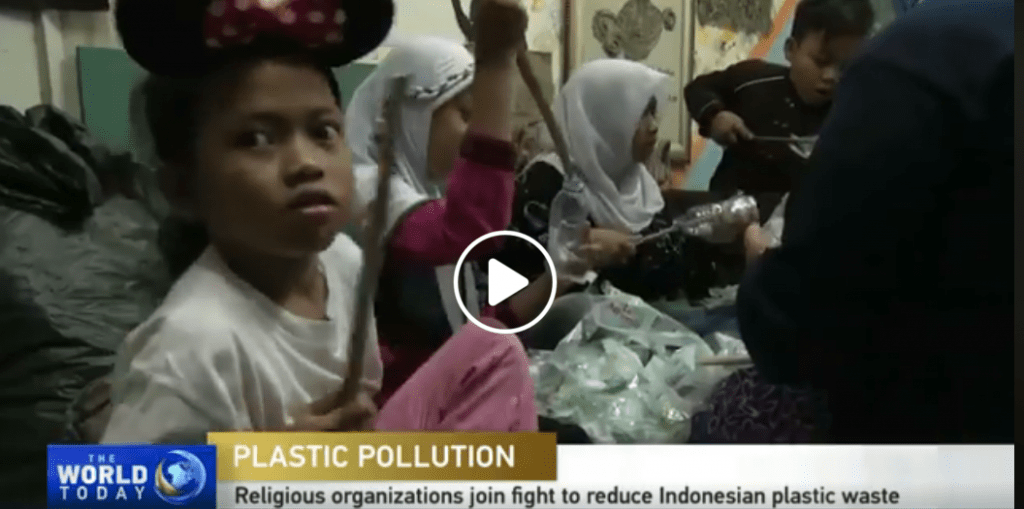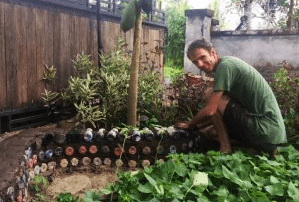It’s pretty cool to see the impact of our work unfold and the impact of the help we get along the way. I discovered this Guardian article on my Facebook feed that references a meeting and a subsequent training that Ani and I made in 2016 with a Muslim group in Jakarta. The Guardian picked it up, because it alludes to an exciting evolution in spiritual perspective here in predominantly Muslim, Indonesia.
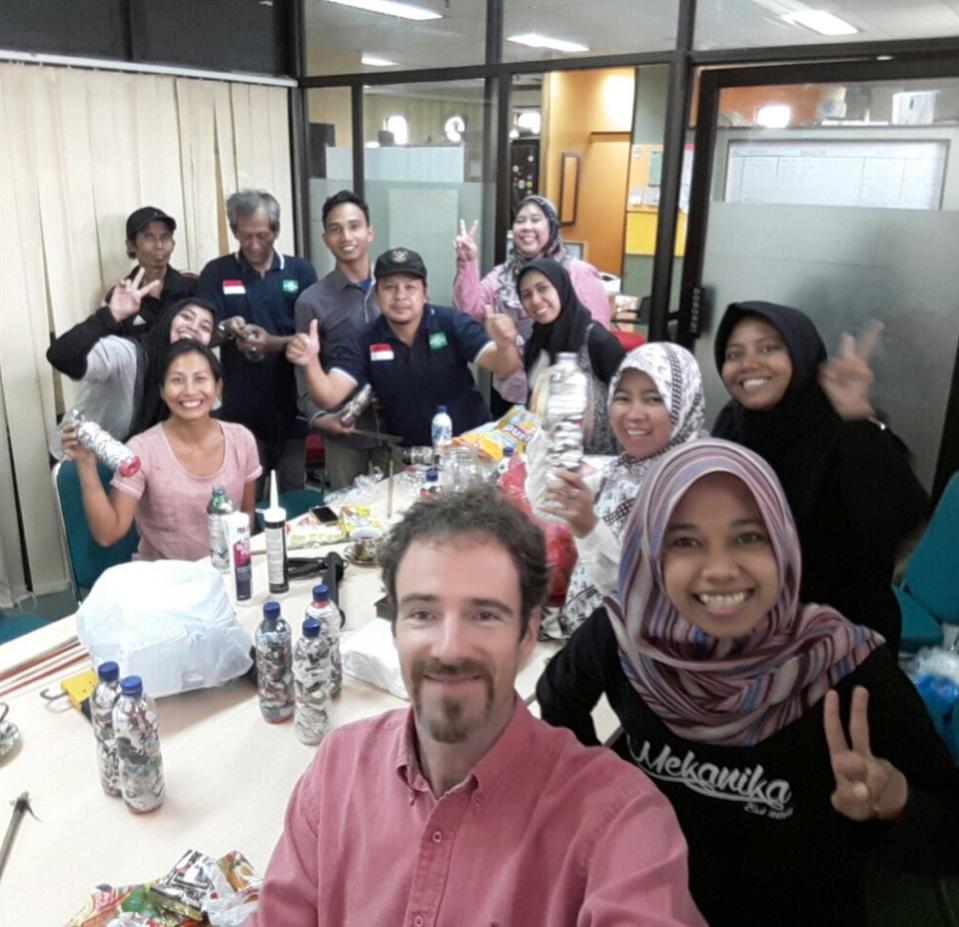
My Facebook post from 2016: “A big thanks to everyone who made this massive tsunami of plastic transformation that is now on its way possible ! Our flights, visa, transportation, accommodations, hot showers, meals, PHP programing, video documentaries, photography, wordpress development, Ecobrick songs, workshop organization, and even my new shirt were all possible through pure vision collaboration. Today, I spent my very last rupiah on our cab fare to the meeting, just as the next help came in. It’s been beautiful! “
Back then, Ani and I received an invitation to meet with leaders in Nahdlatul Ulama, an Islamic organization based in Jakarta. But not just any faith based organization — the largest Muslim religious group on the world with over 90 million members!
Back then, things were really right. As you may know, Ani and I don’t get paid by any company, nor do we have any salaries for our ecobricks work. Yet, we felt it was super important that we make it. After accepting the invitation, we were anguishing how to actually get the tickets to Jakarta! Later that day however, I bumped into Trisha, one of our biggest supporters at a local Ubud cafe. I told her about the opportunity, and she reached into her wallet and gave us enough to reserve our tickets right there!
And we made it.
Our first meeting with NU team was filled with resonance. We met with Mas Ali and Ibu Fitria, heads of the LPBI NU department (one of 19 main NU departments) who are focused on disaster relief and climate change. They were beginning to realize that plastic pollution was itself a slow-motion disaster directly related to climate change.
Already, LPBI had been working on theological concepts to share with Kyais around the country to help them focus the power of faith based engagement on the problem of plastic. They had a book of passages from the Qu’ran and Hadits that encourage care for the environment and managing one’s impact and care for the world around. I was super excited. I have a background in philosophy and theology myself, and one of my great passions is ethics. I had already done lots of thinking on the connection between plastic, ‘waste‘ and the Judeo Christian tradition. We hit it off, and the LPBI team insisted in having us back. They then leveraged the full power of NU organization and the environmental priority to organize a high level event around ecobricks that has been having massive repercussions ever since (i.e. the Guardian article!)

Our NU 2016 Ecobrick Training of Trainers: “Sampah” Plastik
A few months later we were back in Jakarta a full Ecobrick Training of Trainers that was attended by 50 NU environmental leaders from around Indonesia. Not only that, but they managed to get NU president KH Said Aqil Siroj and the directorate general of KLHK (the department of the Environment and Forestry), Tuti Mintarsih to attend the opening. As the Guardian article alludes to, NU made a full commitment to towards transcending waste by 2020.
However, by far the most significant and radical impact of the event was our discussions around “Trash”.
If you look carefully in the banner below, you will see the word “sampah” with quotations around it. One of our fundamental tenets of the ecobrick movement is to transcend the antiquated judgement concepts of ‘trash’ and ‘waste’ and in particular the application of this judgment to plastic. My personal observation is that this is the root of plastic pollution– not plastic itself. I have written extensively on how Western approaches of condemning plastic uses and vilifying plastic as a substance cause far more harm than good!
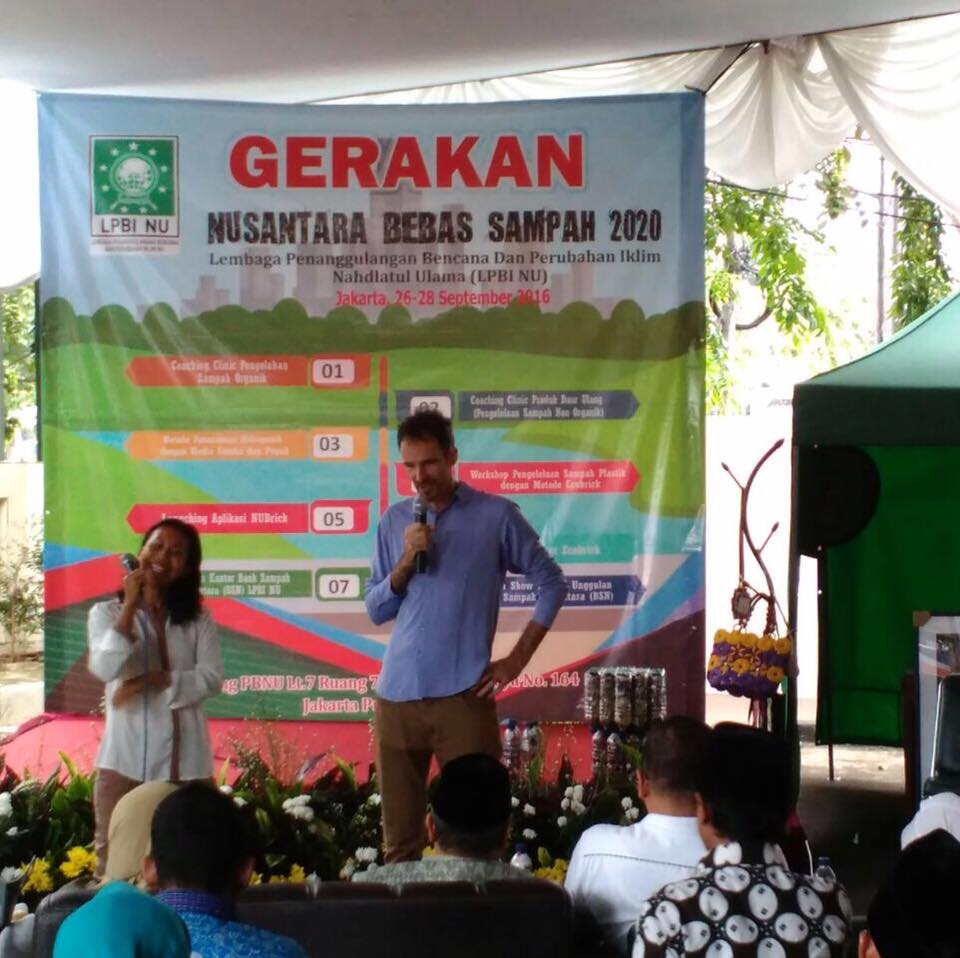
Ani and I talk Ecobricks to the NU Leadership. Ecobricks = Bebas Sampah = Transcending Waste
In a dramatic and revolutionary linguistic move, the NU trainers resonated with this and in the ensuing organizational discussions they named their program “ngaji plastic“. “Ngaji” is the word used for studying the Qu’ran and, instead of condemning or denigrating plastic as most campaigns do, it does just the opposite! It esteems plastic and indicates the spiritual value of reflecting on one’s plastic. In 2017, Kyai Said issued a Fatwa (a religious edict) making the littering of plastic ‘haram’ or forbiden– and fundamentally disavowing the concept of plastic as waste.
The Guardian article doesn’t say much of this back story… it only mentions (and misspells!) the ecobrick connection in passing. However, this was a significant moment that, I like to think, played a part in the growing fervent national advocacy for a spiritual approach to solving plastic.
NU has been educating about plastic and encouraging ecobricks ever since. Their 50 trainers have gone on to do hundreds of workshops. Millions of Indonesians have been introduced to ecobricking. The core concepts of deep plastic transition are spreading. Tons of plastic has been kept out of the Indonesian biosphere. However, perhaps most significantly, they have help catalyze a deep ideological transition that will have far reaching implication in the world’s largest Muslim country over the next decade.
Terimah kasih teman teman NU! Thank you Trisha!! 🙂

